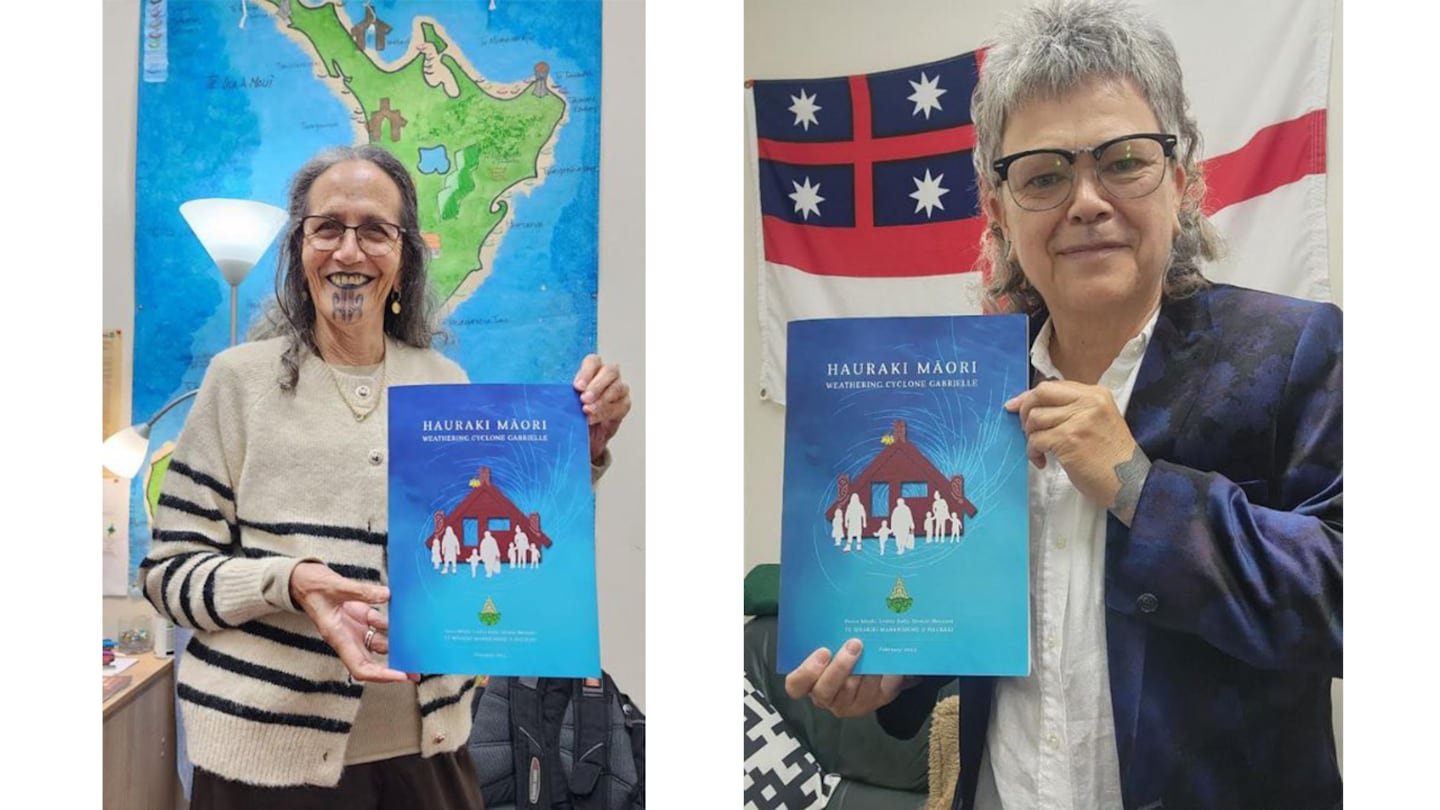Research presented to the Waitangi Tribunal’s Climate Change Priority Inquiry last week has shed light on the experiences of Hauraki Māori during Cyclone Gabrielle, claiming institutional racism and system failure in New Zealand’s disaster response.
The 95-page report, Hauraki Māori Weathering Cyclone Gabrielle, was presented by Denise Messiter ONZM, CEO of Te Whāriki Mana Wahine o Hauraki.
It is the first public release of the research since its completion in April and was met with strong interest from the Tribunal panel for its documentation of lived experiences and proposed practical solutions.
Community-led response amid systemic gaps
Based on interviews with 30 participants, including whānau and Thames-Coromandel District Council representatives, the study described how Māori communities felt unsupported during the cyclone and were required to activate their own emergency responses.
“It began because they did nothing. I mean, seriously, absolutely nothing. We did our own emergency management planning,” one participant told researchers.
Despite repeatedly requesting emergency equipment over several years, Māori communities had received no support from local civil defence.
When Cyclone Gabrielle hit, isolated communities established their own evacuation centres and resource hubs, often with limited equipment.
Disparities in resource access
The study drew attention to disparities in the allocation of emergency resources.
“Our marae needed a generator, but when we asked for one, there were none available. Yet earlier that day, we saw a helicopter fly over us with three generators for a more well-off community,” said one of the participants.
The report claimed civil defence officials attempted to commandeer food and resources that Māori communities had sourced for themselves, to redistribute to others.
Knowledge systems overlooked
The study underscored a disconnect between official emergency responses and mātauranga Māori.
In particular, for Māori in Hauraki, the intergenerational knowledge of weather patterns and environmental risks could enhance climate resilience.
“We’ve been reading these weather patterns for generations, but no one seems to listen when we warn about potential flooding,” one whānau member said.
Resilience through community networks
Despite the challenges, the report highlighted strong local resilience.
Communities reactivated networks established during COVID-19, coordinated food distribution, and utilised transitional housing initiatives.
One initiative, the Hauraki Relocatable Housing Project, offered temporary shelter for those whose homes were damaged, with one participant describing the emotional significance of finally accessing safe housing after living in a shed with no plumbing.
Calls for structural change
The report advocated for increased Māori governance in emergency management, referencing the 2016 Matike Mai report, which proposed constitutional transformation to ensure Māori decision-making power, not just consultation.
Recommendations include:
- Hapū and Iwi Emergency Response Assemblies that actually make decisions for their people
- Marae recognised as critical emergency infrastructure, not afterthoughts
- Emergency management laws that embed Māori governance instead of excluding it
- An Emergency Management Tiriti Assembly where Māori and Crown work as equals, not the Crown telling Māori what to do.
One participant expressed the view that true partnership means Māori leading responses for their communities, rather than relying solely on Crown-led processes.
Addressing longstanding inequities
The study linked the cyclone response to broader patterns of persistent disadvantage. It notes the intersection of historical land loss, financial barriers, and limited access to recovery support as ongoing challenges.
District council participants acknowledged the presence of historical trauma and noted that engagement with Māori communities had often been more process-driven than people-focused.
Climate justice and treaty considerations
The research exposed how the impacts of climate change hit hardest on the communities already facing systemic disadvantages.
The systematic exclusion of Māori from emergency management decisions, combined with the failure to protect communities most vulnerable to climate impacts, presents compelling evidence of Crown Treaty breaches in climate policy.
The Waitangi Tribunal’s findings could require fundamental changes to ensure Māori knowledge and communities are central to climate adaptation, not afterthoughts.
As the report concludes: “The time for action is now. Failure to act perpetuates injustice, while bold and principled transformation ensures a more substantial, safer, and just future for all.”



